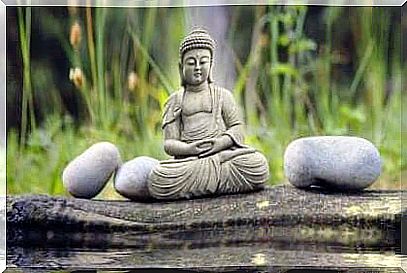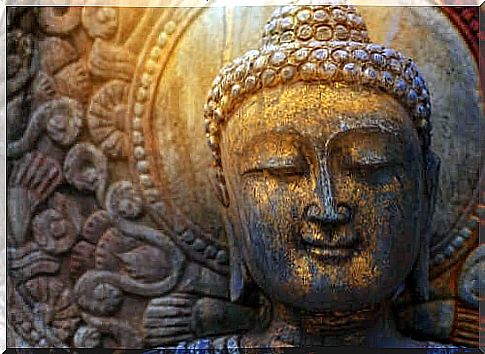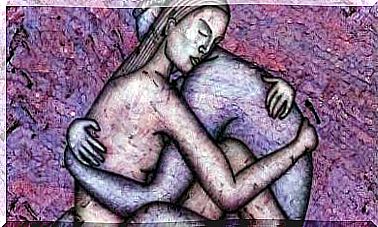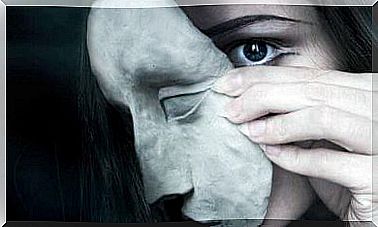The Ten Spiritual Kingdoms Of Zen Buddhism

According to Buddhist cosmology, there are the ten spiritual realms that turn into ten different states of mind. Each of these conditions exposes the mind to certain emotions. In other words, predetermined aspects dominate in every moment.
Buddhists teach that all ten spiritual kingdoms are not equal. Four of them are considered superior conditions and six of them are inferior. The superior conditions come from applying voluntarily, the desire to discover and self-improvement.
The four inferior states look at the reaction of the outside world. These are states of mind where life is clearly affected by external forces. They do not lead to evolution, but to suffering. Let us look at the ten spiritual realms.

1. Learning: one of the ten spiritual realms
“Those who hear the voice” is another name for this. This corresponds to those who observe reality, want to know more about it and are open to discovering and understanding the truth.
However, the superior condition depends on the exterior. People in this state look for truth through what the senses or others tell them.
Fulfillment
This is the second of the ten spiritual realms. “Those who are awakened to the cause” is another name for it.
This corresponds to a greater level of autonomy. Thanks to observation, effort and meditation, people are able to become aware of the “why” of things. In other words, they understand the law of cause and effect and how it materializes.
3. Bodhisattva
The word bodhisattva refers to the state of mind that practitioners use to achieve awakening, mainly through compassion and altruism.
Those who are in this state feel a real desire to free others from suffering and lead them to awakening. In this state, it is to give and help sources of happiness and peace.
4. Buddhahood , one of the ten spiritual realms
Buddhahood , or the state of Buddha, is the highest of the ten spiritual realms. It is also the highest rank of nobility and that which identifies those who have attained true awakening.
Buddhahood is a state of absolute inner peace that cannot be changed by any external circumstances. It is characterized by wisdom and unlimited compassion.
5. Hell
Hell is the lowest of the ten spiritual realms. It is a state of mind where there is an absolute lack of freedom.
In some cases, it is about being completely overwhelmed by the suffering that has caught you. In others, hatred and destructive emotions bind them and suffocate those who are stuck in it.
6. Hunger: one of the ten spiritual realms many are familiar with
Unsatisfied desires dominate the realm of hunger. If it’s bright, it’s because it lacks satisfaction. The one who desires is thus doomed to be lacking.
“Hunger”, in a symbolic sense, makes people feel miserable and makes them adopt insatiable behavior. If you can transform these desires creatively, there is a will to get better.
7. Animalism
Animalism is a condition in which human beings receive instant and irrational satisfaction. Impulse dominates this state, not reason or the heart.
Animals fear the strong and abuse the weak. In this state, life is about fighting for survival instead of a place one can create. If animalism develops, it becomes loyalty and generosity.
8. Rage
This is also called the troubled kingdom and the main characteristic is competitiveness. In rage, one tends to compare oneself with others and always has the intention of being better than them.
Those who are in this state are arrogant towards the weaker and flattering towards those who are more powerful. In this case, people may be conscious, but it is only for that purpose to achieve selfish goals. If it develops, it leads to self-esteem.

9. Mankind
People in this state have the capacity to come to their senses. Therefore, they know the difference between right and wrong.
They also have control over their behavior. Passion for abstract ideals and vulnerability in the face of negativity is what characterizes this condition. From there, they have the potential to advance to a superior state.
10. Ecstasy
“Heavenly beings” is another name for people in this state. The pleasure and joy of satisfying desires and getting what you want is what defines this state. This happiness is only temporary.
Happiness and awakening are different because one is temporary. It depends on uncontrollable circumstances coming from outside. They do not have negative feelings, but it is also temporary.
The ten spiritual kingdoms are not created in any particular order. In other words, you do not go from one state to another in a linear fashion. It is possible to move back and forth even if there is one condition dominating in most people.









